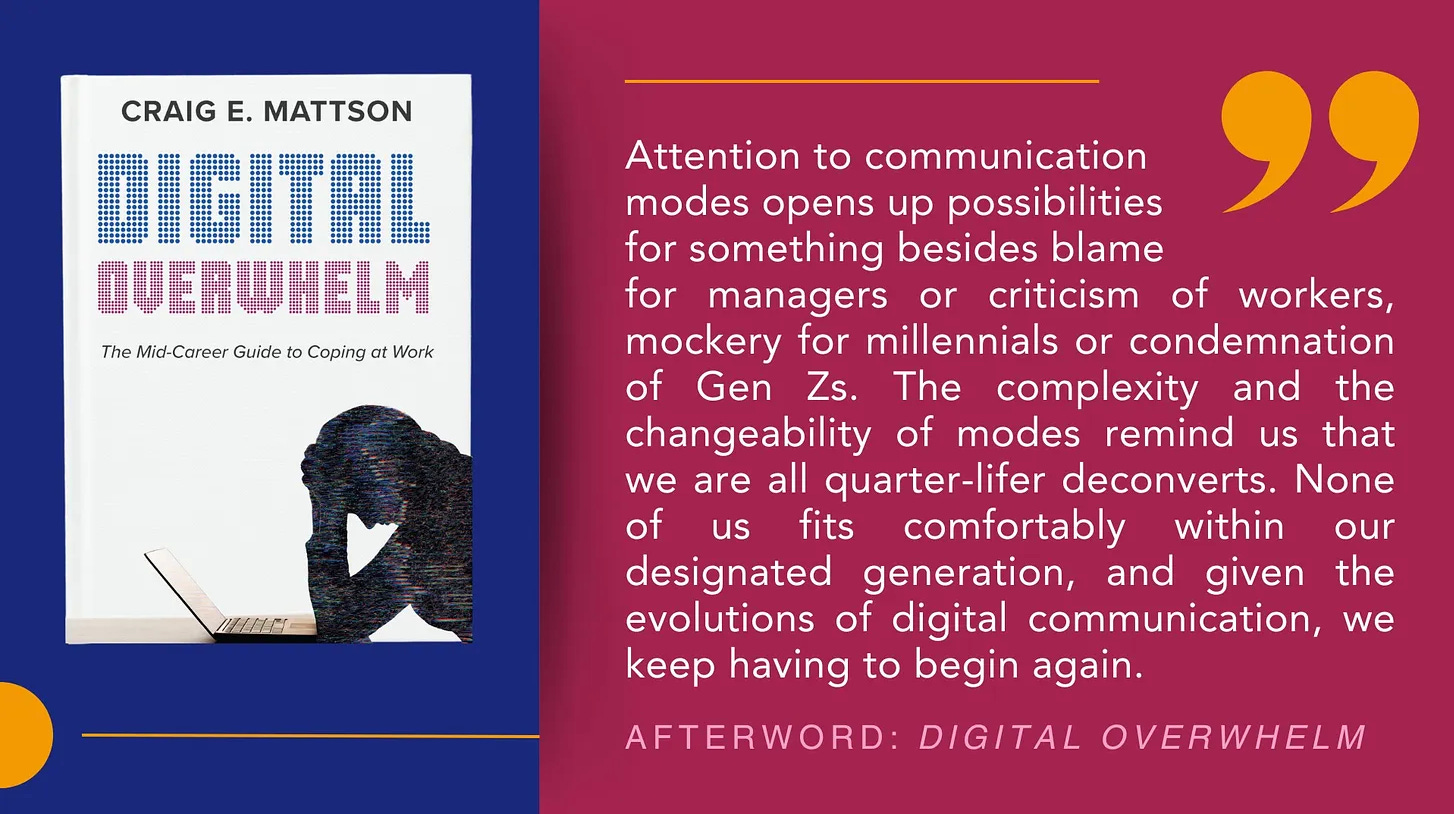Is It So Sad If You're Not Happy at Work?
There's wisdom in melancholy, and here's a skimmable discussion to show you why. As always, I'll share a Trend, a Study, a Tale, and a Switch in behavior and mindset.
A Trend
It seems pretty clear that Springfield, Ohio’s not actually finding new uses for pets.
But workplaces all over the country are sweetening hybrid work arrangements by welcoming pets to the office. It makes good business sense: 91% of employees, according to a recent study, report higher engagement with their work when dogs are around. Dismiss it as just another episode of The Woofice, but a lot of American workers feel happier with a labradoodle around.
This trend makes me wonder: should happiness at work be our goal for organizational community?
A Study
Happiness at work preoccupies social scientists and thought leaders and policy makers. You can study Happiness Economics, follow the Happiness Firm, and check out “the world’s largest live workplace happiness database” to see how your company ranks. If you really want to lean into this affective turn, go ahead and take one of the many, many happiness tests available online.
But not all studies point to the indispensability of happiness in the workplace. One study notes that individual worker’s feelings matters less than the overall health of an organization. After surveying 46,336 UK workers, researcher William Fleming reported that intervening to improve an individual worker’s mental wellness doesn’t appear to make as much difference as improving a company’s overall culture.
A Tail
I don’t know who needs to hear this, but one time I did bring my dog to work, and it didn’t improve my happiness—at least not directly. I can’t remember for sure why I was in charge of our family’s Shih Tzu, Chaucer, or why he couldn’t be left alone. In any case, he sauntered in my office, hopped up on my wicker chair, and claimed an afghan as his own. All was peaceful until my supervisor made an unexpected appearance, coming around the corner so suddenly that Chaucer blew up into a typhoon of barking. My supervisor actually put his hand to his heart in a nineteenth-century display of distraught emotion. Surprise gave way to helpless laughter.
My pet didn’t intensify my workplace happiness. But that shared laughter sure did. That gets me to thinking that maybe we’re putting too much pressure, not just on individual Shih Tzus, but on individual souls to generate vocational joy.
Here’s what I learned from bringing my dog to work: happiness happens not just in your heart but in the unexpected in-betweens of everyday life and work.
A Switch
Susan Cain’s new book Bittersweet makes the case for melancholy in human community. I think that’s a word I need to hear at work, too. If the goal isn’t just happiness but wholeness, maybe we need a mode/switch from happiness economics to emotional integrity. You might be right to suspect company leaders of optimizing joy at work for the sake of profitability. I mean, that’s what business does, right? Nothing wrong with profitability. But if we took Cain’s advice and sought emotional wholeness—even grief or melancholy—our workplaces might be places for wholehearted humans.
One final word about pets, work, and happiness. The new iPhone 16 has a pet-identifier so you don’t have to ask people what kind of dog they have. Yay! But wait, as Kevin Roose and Casey Newton have taught me to wonder, shouldn’t dogs get us talking to each other? Even more importantly, shouldn’t pets at work get us all tangled up in each other’s lives and leashes?
Listen While You Work
One Huge Obstacle to Emotional Integrity
My new book Digital Overwhelm discusses the intersections of technological developments and massive emotional upwellings in our everyday life and work. That’s an intersection where it’s hard place to be a human—which is why I’m encouraging you to purchase my book here so you can do more than cope when work’s a lot.








